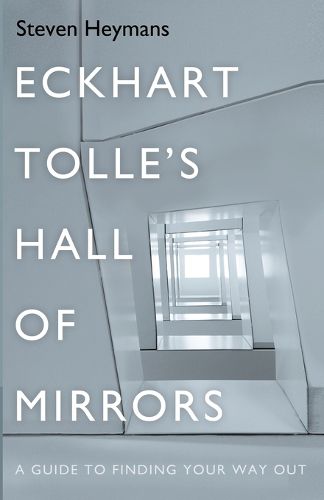Readings Newsletter
Become a Readings Member to make your shopping experience even easier.
Sign in or sign up for free!
You’re not far away from qualifying for FREE standard shipping within Australia
You’ve qualified for FREE standard shipping within Australia
The cart is loading…






This title is printed to order. This book may have been self-published. If so, we cannot guarantee the quality of the content. In the main most books will have gone through the editing process however some may not. We therefore suggest that you be aware of this before ordering this book. If in doubt check either the author or publisher’s details as we are unable to accept any returns unless they are faulty. Please contact us if you have any questions.
Tolle's project is one of empowering humans to detach from the many externalities that people typically identify themselves by--histories, bodies, desires, beliefs, work, emotions, roles--which are thought to be the sources of personal affliction. To detach from them allows one to enjoy a more truthful and untroubled life. The ""true self"" that Tolle promotes is a self that is stripped of the externalities people identify with so that they might enter a spiritual realm that is transcendent and anxiety-free. One of the criticisms of Tolle in this book is that the spiritual wisdom he promotes makes people less human and more spiritual, angelic, and godly. But that world--the world of spirits, angels and gods--is not where people belong, says classics scholar Martha Nussbaum. Humans are mortals, and their mortality brings with it limitations and constraints within which they must operate. But operating within such limitations--which include time (temporality) and death--does not mean people are without resources in the human project to live and flourish. Humanness has allowed people to develop an array of skills that have become their birthright--rationality, resourcefulness, emotional intelligence, cooperation, and storytelling, among others. This book argues that Tolle's project of transcending leads to an impoverishment of humanity; in contrast it calls for an understanding and embrace of humanness that allows people to flourish within the limits imposed upon them within their material and bodily conditions.
$9.00 standard shipping within Australia
FREE standard shipping within Australia for orders over $100.00
Express & International shipping calculated at checkout
This title is printed to order. This book may have been self-published. If so, we cannot guarantee the quality of the content. In the main most books will have gone through the editing process however some may not. We therefore suggest that you be aware of this before ordering this book. If in doubt check either the author or publisher’s details as we are unable to accept any returns unless they are faulty. Please contact us if you have any questions.
Tolle's project is one of empowering humans to detach from the many externalities that people typically identify themselves by--histories, bodies, desires, beliefs, work, emotions, roles--which are thought to be the sources of personal affliction. To detach from them allows one to enjoy a more truthful and untroubled life. The ""true self"" that Tolle promotes is a self that is stripped of the externalities people identify with so that they might enter a spiritual realm that is transcendent and anxiety-free. One of the criticisms of Tolle in this book is that the spiritual wisdom he promotes makes people less human and more spiritual, angelic, and godly. But that world--the world of spirits, angels and gods--is not where people belong, says classics scholar Martha Nussbaum. Humans are mortals, and their mortality brings with it limitations and constraints within which they must operate. But operating within such limitations--which include time (temporality) and death--does not mean people are without resources in the human project to live and flourish. Humanness has allowed people to develop an array of skills that have become their birthright--rationality, resourcefulness, emotional intelligence, cooperation, and storytelling, among others. This book argues that Tolle's project of transcending leads to an impoverishment of humanity; in contrast it calls for an understanding and embrace of humanness that allows people to flourish within the limits imposed upon them within their material and bodily conditions.